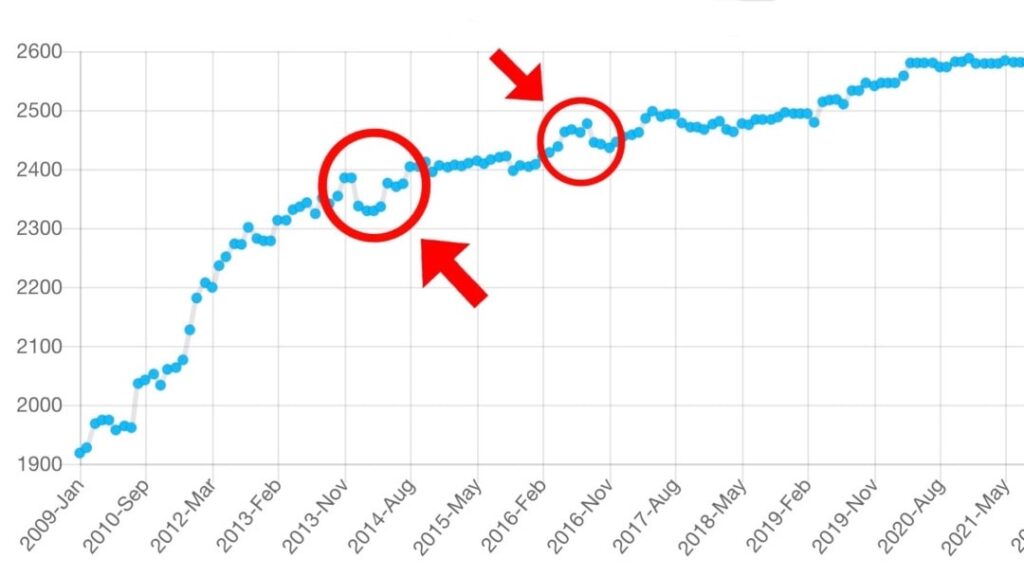If Chess improvement was easy, everyone would be a Grandmaster. What makes improvement difficult is that you usually only see results after a painful period. I recently realized this with my health when my therapist told me:
“To get to the Next Level, you will need to increase your effort in Gym, then suffer for some weeks from more symptoms and only then things will be better”.
Effort → Pain → Improvement
This exact same cycle applies to Chess improvement as well. The problem: nobody can tell you how long exactly the Pain period will be. Powering through that period is the hardest task when aiming to improve anything.
Giving Up
The most frequent reason for stagnation is resignation. Either by stopping to play chess altogether. Or by stopping to put real effort in to avoid the pain. This is a pity because in most cases Chess improvers are so close to seeing the results and then they give up.
It happens with new openings, but also tactics & strategy. You learn the London, lose the first couple of games, and then immediately switch openings. More often than not this is premature. Learning something new takes time!
Probably you were very close to understanding the opening enough well to finally get some wins. But instead losing was so painful that you searched for another opening instead. This is a vicious cycle many chess improvers are in. It costs time, money & motivation. So how can you power through the painful moments to get to the rewards?
Commit To The Process
Going to the gym and feeling completely destroyed the day after isn’t fun. Because of my brain injury, I have added concentration issues, nausea, and headaches after a hard session. If I don’t prepare for that moment, I’m likely to give up at this point. I learned that a gym session causes pain and I will opt to avoid this pain in the future.
That is why you need to plan ahead, expect the pain period, and commit to the process. For any long-lasting improvement, you should at least commit to 4 weeks of good effort without expecting any results in return.
That goes for new habits, therapy, or Chess improvement. If you go into these 4 weeks expecting to be tough and painful, it will actually be much easier to power through.
Note: the period will be much longer if you only have a little time or your effort isn’t great.
Off-Season Training
Professional Athletes have figured this out for a long time. They work hard (mostly without visible improvements) in the off-season and benefit from that during the season. My best friend was a professional Swimmer. He hated the first couple of weeks of training every single year. He felt weak, it was painful and no process was visible.
But he knew exactly that the better he trained in those weeks, the faster he would swim at important competitions later on. This helped him to get through the Pain stage in the Effort → Pain → Improvement cycle. As we don’t have a clear season in chess (you can play 24/7), this process isn’t clear for many improvers.
Here are some tips to improve your training and benefit from the Effort → Pain → Improvement cycle.
- Don’t play rated games in the pain stage. You will only feel demotivated by the bad results. Instead either play unrated training games or focus solely on your training.
- Give a new opening at least 3 months’ time. This allows you to adjust to new plans and ideas without losing motivation. Be aware that playing a new opening is a risk at the beginning. You will lose some games due to inexperience.
- Expect stagnation periods. Nobody’s rating graph is a straight line! If you expect things to go bad you will be less influenced mentally when this inevitably happens. You can stick to your routine and power through the pain period.
- Focus on what you can control. The only thing you can do is to make sure your training is amazing. Then results will take care of themselves.

Putting in great effort and not being able to reap the fruits is frustrating. Now that you are aware of the Effort → Pain → Improvement cycle, this shouldn’t happen to you anymore.